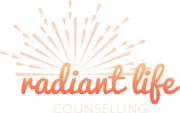
I love to read (both old-school paper and audiobooks) and always have a couple of different books on the go, including poetry, fiction, and something counselling or psychology related. I read a couple of pretty awful books last year but I also read some great ones, listed below, which will be added to my resources page when I get a minute.
- Adult Children of Emotionally Immature Parents; How to Heal from Distant, Rejecting, or Self-Involved Parents – Lindsay C. Gibson – this book was recommended by a client and after listening to the audiobook, ordered a paper copy for reference and have been recommending it far and wide. We can love our parents and understand that they did the best they could, and still feel frustrated that they didn’t give us the tools we needed to understand and regulate our emotions.
- What My Bones Know; A Memoir of Healing from Complex Trauma – Stephanie Foo. I was a longtime listener of Stephanie Foo on This American Life podcast, so I was looking forward to this book. She does an amazing job of unpacking cPTSD and explaining it, while weaving her personal narrative throughout.
- Rage Becomes Her: The Power of Women’s Anger – Soraya Chemaly. Anger is an important core emotion but it is also one that has been discouraged for so long in women to become almost unrecognizable – sometimes by our own selves. This book takes a look at what it looks like, where it comes from, and how to express it.
- No Bad Parts: Healing Trauma and Restoring Wholeness with the Internal Family Systems Model – Richard Schwartz. I actually found the IFS book for clinicians (simply called Internal Family Systems Therapy) to be a better book and accessible enough for non-clinicians, but No Bad Parts is a great overview of parts and parts work, and includes some exercises to work through.
- The Myth of Normal: Trauma, Illness, and Healing in a Toxic Culture – Dr. Gabor Mate, Daniel Mate. One of the first books I read last year, and then found myself coming back to it again and again throughout the year, as I recommended it to others and refreshed some of the ideas. This book unpacks the shared delusion we have accepted that this amount of trauma, addiction, chronic illness, stress, and individualization are “normal”, when it is in fact killing us.
- The State of Affairs: Rethinking Infidelity – Esther Perel. A book that has been on my list for years but hadn’t had time to get to it and I found myself loving it. It is ostensibly about infidelity but does a great job of diving into the institution of marriage, monogamy, relationships, and interpersonal dynamics.
- How We Show Up: Reclaiming Family, Friendship, and Community – Mia Birdsong. This book is not so much about counselling but I found it highly relevant and helpful for building community and bridging the gaps between individualization and loneliness in a very healing way.
- The Art of Gathering: How We Meet & Why It Matters – Priya Parker. This book goes very well with How We Show Up, by unpacking the psychology around gatherings and how to gather in an impactful way.
- Who Is Wellness For? An Examination of Wellness Culture and Who It Leaves Behind Fariha Roisin. This is such an important book for anyone in the business of, or interested in, wellness. It dives into the privilege of wellness, the empire built around it, and how to make it more accessible.
- White Women: Everything You Already Know About Your Own Racism and How to Do Better – Regina Jackson, Saira Rao. This is maybe the most important book I read last year. White Women’s tendency to be nice and not offend often means that racism is not discussed, making it all the more dangerous. This book is a reality check and call to action.
There are also two books which may not appear immediately to belong to this list but which I think deserve mention.
- Demon Copperhead – Barbara Kingsolver. A novel by one of my favourite authors that is an excellent depiction of how childhood trauma and systemic oppression can affect a life and the lives around them.
- Ten Steps to Nanette -Hannah Gadsby. An autobiography of internationally acclaimed comedian Hannah Gadsby that talks honestly about her struggles with homophobia (internalized and towards her), autism, addictions and mental health.
Have you read any of these? What are your thoughts? Did you read anything great that you would recommend? Let me know.



